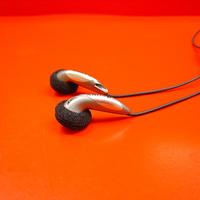当 ……的 时候
when
En ......
Lorsque ......
いつ......
Quando ......
Когда ......
当 地震 发生 的 时候 , 我们 要 冷静 。
When the earthquake happens, we have to be calm.
Lorsqu'un tremblement de terre se produit, nous devons nous calmer.
当 地震 发生 的 时候 , 我们 要 冷静 。
当 地震 发生 的 时候 , 我们 要 冷静 。
When an earthquake strikes, we have to be calm.
当 地震 发生 的 时候 , 我们 要 冷静 。
When an earthquake strikes, we have to be calm.
当 地震 发生 的 时候 , 我们 要 冷静 。
When an earthquake strikes, we have to be calm.
当 地震 发生 的 时候 , 我们 要 冷静 。
When an earthquake strikes, we have to be calm.
昨天 当 我 路过 他家 的 时候 , 他 正在 洗车 。
When I passed by his house yesterday, he was washing the car.
Quand je suis passé devant sa maison hier, il lavait la voiture.
昨天 当 我 路过 他家 的 时候 , 他 正在 洗车 。
When I passed his house yesterday, he was washing the car.
昨天 当 我 路过 他家 的 时候 , 他 正在 洗车 。
When I passed by his house yesterday, he was washing his car.
昨天 当 我 路过 他家 的 时候 , 他 正在 洗车 。
When I passed his house yesterday, he was washing the car.
昨天 当 我 路过 他家 的 时候 , 他 正在 洗车 。
When I passed his house yesterday, he was washing the car.
昨天 当 我 路过 他家 的 时候 , 他 正在 洗车 。
When I passed his house yesterday, he was washing the car.
当 心情 不好 的 时候 , 我 喜欢 去 买 东西 。
When I am in a bad mood, I like to go shopping.
Quand je suis de mauvaise humeur, j'aime faire du shopping.
当 心情 不好 的 时候 , 我 喜欢 去 买 东西 。
When I am in a bad mood, I like to go shopping.
当 心情 不好 的 时候 , 我 喜欢 去 买 东西 。
When I'm in a bad mood, I like to go shopping.
当 心情 不好 的 时候 , 我 喜欢 去 买 东西 。
When I am in a bad mood, I like to go shopping.
当 心情 不好 的 时候 , 我 喜欢 去 买 东西 。
When I'm in a bad mood, I like to go shopping.
当 心情 不好 的 时候 , 我 喜欢 去 买 东西 。
When I'm in a bad mood, I like to go shopping.
当钱 不够 的 时候 , 他 向 朋友 借 。
When the money is not enough, he borrows from a friend.
Lorsque l'argent ne suffit pas, il emprunte à des amis.
お金が足りないときは友達から借ります。
当钱 不够 的 时候 , 他 向 朋友 借 。
When the money was not enough, he borrowed from friends.
当钱 不够 的 时候 , 他 向 朋友 借 。
When the money was not enough, he borrowed from friends.
当钱 不够 的 时候 , 他 向 朋友 借 。
When the money was not enough, he borrowed from friends.
当钱 不够 的 时候 , 他 向 朋友 借 。
When the money was not enough, he borrowed from friends.
当钱 不够 的 时候 , 他 向 朋友 借 。
When the money was not enough, he borrowed from friends.
单词
“ 地震 ”“ 地震 ”
"Earthquake" "Earthquake"
"Tremblement de terre" "Tremblement de terre"
“ 发生 ”,“ 发生 ”
"Happens", "Happens"
«Happens», «Happens»
“ 冷静 ”,“ 冷静 ”
" calm down"
" calmer"
“ 路过 ”,“ 路过 ”
"Pass by", "pass by"
«Passer par», «passer par»
“ 够 ”,“ 够 ”
"Enough", "Enough"
"Assez assez"
“ 借 ”,“ 借 ”
"Borrow", "borrow"
"Emprunter", "Emprunter"
句型
Sentence pattern
Structure de phrase
“ 当 …… 的 时候 ”,“ 当 …… 的 时候 ”
"When...", "When..."
「いつ...」、「いつ...」
扩展 词
Extension word
Mot d'extension
“ 紧张 ”“ 紧张 ”
"Tense" "Tense"
“ 生气 ”“ 生气 ”
"Angry" "angry"
«En colère» «en colère»

